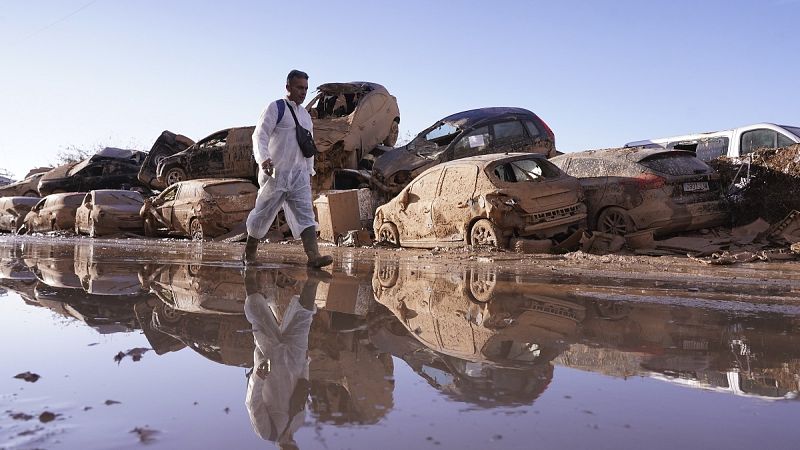COP29: European mayors and city leaders appeal for more money to prevent climate disasters

Ongoing floods in Spain have led to intense scrutiny over the role of regional governments in managing climate change-related disasters. 10,000s of Spaniards took to the streets last weekend to protest what they see as poor preparedness and response from their government after the devastating Valencia floods.
At the COP29 climate talks in Azerbaijan, regional leaders from around Europe are asking for more investment to allow them to prepare their areas for the increasingly frequent and deadly extreme weather which is sweeping the continent.
They're realising that everything from buildings and transport to their emergency management systems are just not ready for the future.
"Over the years, decisions have been made which, of course, at the time, seemed to be the right ones, but which also end up having these consequences.
And this is happening in Valencia or has happened in Valencia, just as it has happened in a number of other places affected by floods, forest fires and drought," says President of the European Committee of the Regions, Vasco Cordeiro.
Adaptation - or preparing for the inevitable consequences of human-caused climate change - has been a big topic during the first four days of COP29.
Adjusting the route water takes off mountains is one type of adaptation
Making investments in water course management is one example of the kinds of pro-active investments that can really pay off in the future, according to the President of the Region of Bratislava, Juraj Droba:
"You really have to think very well how you spend the limited amount of money that you have. What paid off in my region was building small dams in the hills, which actually stream the little rivers in such a way that they didn't do more damage than than they did. And I think this is something which doesn't cost too much. You can do it at the time of normal weather conditions and then you are much better prepared."
There are many voices clamouring for attention at COP29.
But mayors, city leaders, regional councillors say they need to be listened to, because when it comes to climate change, they are the ones on the frontline and when things go wrong, they're the ones facing the backlash, too.
Yesterday

